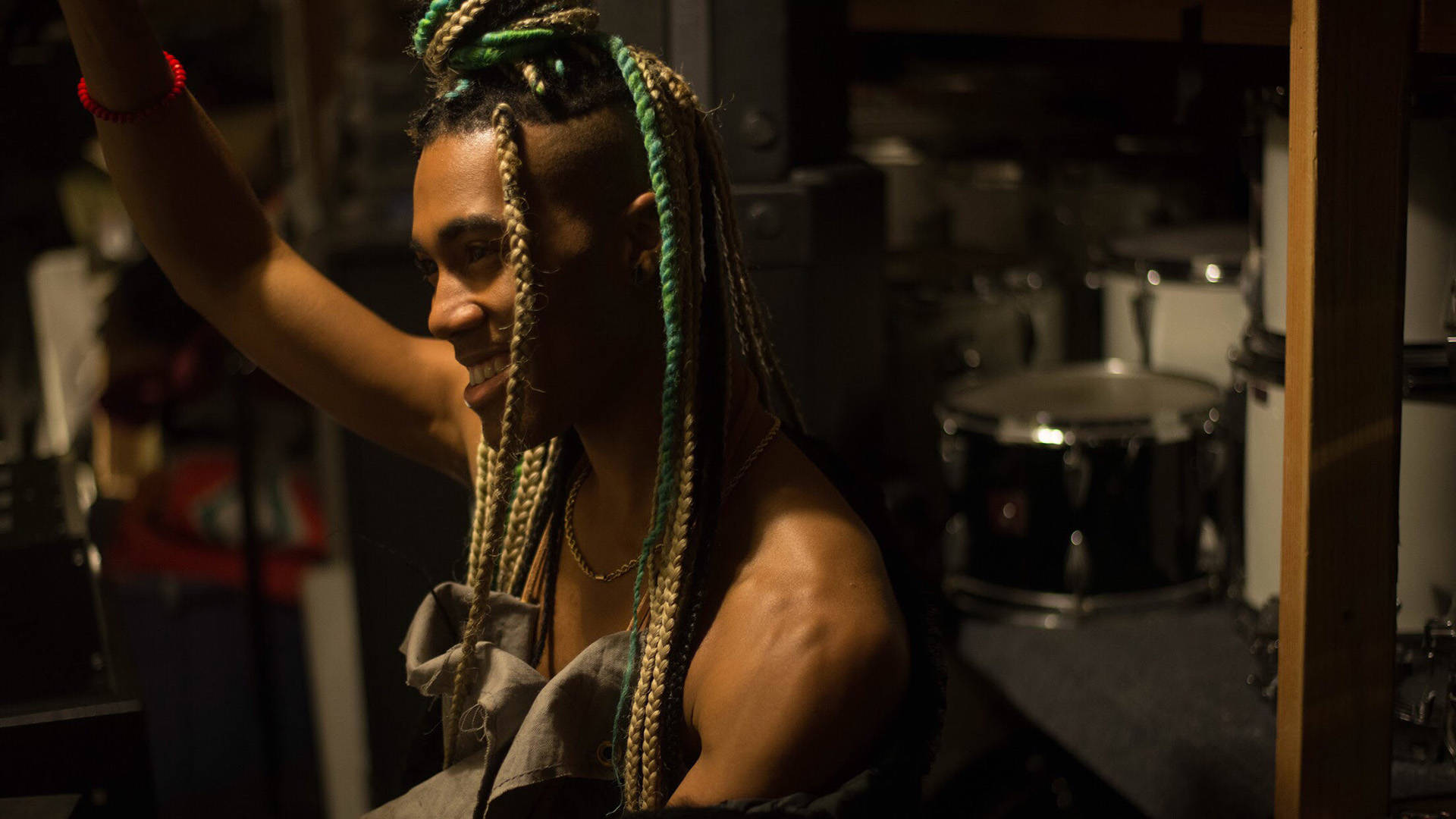In Paradise: Return to Aja, the Afrofuturist sci-fi play that ran at San Francisco’s Brava Theater during Pride month, Saturn Rising (Saturn Jones) strutted onto the stage draped in colorful fabrics, braids whipping around as they twirled, dipped, and sashayed. The role of Aja, a non-binary deity that exists in a universe of one’s own creation, couldn’t have been more fitting for the multi-faceted, gender-non-conforming artist.
“[Aja] was this god of living your complete truth and being so full of your light, so I was like, ‘Oh, of course that’s me,’” says Saturn — who goes by the pronoun “they” — when we meet after a studio session in Oakland. Dressed casually in athletic leggings and a mesh jersey, Saturn’s faux-dreadlocks are wrapped in a colorful scarf — a look that exemplifies the constant interplay of masculine and feminine in their work.
Saturn has long been a champion of androgynous self-expression, with a vibrant presence as a dancer and self-styled fashion icon in the Bay Area’s LGBTQ nightlife scene well before they started making music. A native of Hercules, an East Bay suburb between Richmond and Vallejo, Saturn flocked to San Francisco’s club scene immediately after turning 18. Go-go gigs came first, but they later developed an identity as a boundary-pushing dancer and performance artist who was much more than eye candy for the club. They’ve performed at popular queer parties like Swagger Like Us, opened for big-name artists like L1ef and Big Freedia, and created multi-media performance art pieces for Codame Art+Tech and other art events.
All of these accomplishments paved the way for Saturn to break into the local music scene. After releasing a string of singles and music videos over the past two years, last month finally brought a debut EP, Darkest Dream, on Molly House Records, a San Francisco label that champions the work of LGBTQ pop, rap, and electronic artists from both coasts.



